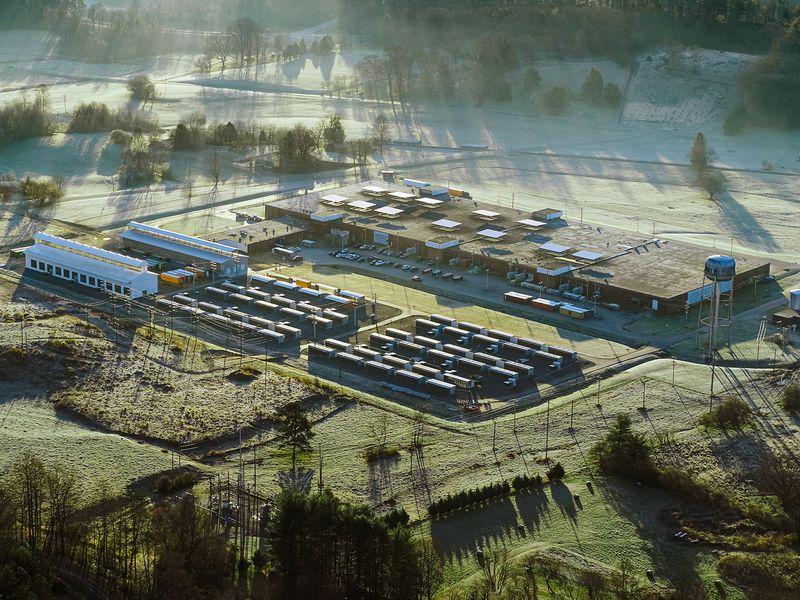Core Scientific Again Raises Bitcoin Mining Hosting Rates
The world’s largest bitcoin miner, Core Scientific (CORZ), raised its rates for hosting other companies’ machines to just under 10 cents per kilowatt hour, two people familiar with the matter told CoinDesk.
It’s the latest price hike for Core Scientific, which had previously raised its rates by 20%-25% in recent months because of soaring energy costs. With the price of bitcoin stubbornly hanging around in the $20,000 area, the boosted costs make it even more difficult for miners to break even.
Hosting is a service that data centers provide to crypto miners so that customers can store their mining rigs and mine digital assets for a fee without having to build the infrastructure themselves. Core Scientific has both a hosting and mining business, with 22.5 exahash/second (EH/s) of its own and others’ computing power in its data centers across the U.S. The company is actually losing money of late on hosting operations, according to its most recent earnings report.
A Core Scientific spokesperson declined to comment on the specifics, but said that “increased power costs are passed through” to customers … While the cost of power has been on the rise, we do expect power costs to decline again in the future, which would be reflected in our future rates.”
“All units outside of the [Bitmain Antminer] S19 XP [go] into negative gross margin territory,” at above 9 cents per kilowatt hour, said Ethan Vera, chief operating officer at mining services firm Luxor Technologies. “If hashprice [the value of 1 terahash/second of computing power per day] trends down we expect it to hit some resistance points as the high-cost operators and low-efficiency miners turn off,” he added.
Analyst Chris Brendler at investment bank DA Davidson downgraded CORZ from buy to neutral in a note earlier today, saying it was a tough decision given it is the “best-in-class in many ways.” However. the miner is at a “significantly more stressed liquidity position than expected” and its hosting business is under stress due to unhedged power and “uneconomic hosting contracts,” Brendler wrote.
Cheap hosting has become next to impossible to find in the U.S. as electricity prices have increased significantly along with the price of natural gas. Meanwhile, miners in Europe have either powered off or are moving to the northern parts of the continent in search of cheap power to stay afloat.
Sign up for The Node, our daily newsletter bringing you the biggest crypto news and ideas.
By signing up, you will receive emails about CoinDesk product updates, events and marketing and you agree to our terms of services and privacy policy.
DISCLOSURE
Please note that our
and
do not sell my personal information
has been updated
.
The leader in news and information on cryptocurrency, digital assets and the future of money, CoinDesk is a media outlet that strives for the highest journalistic standards and abides by a
strict set of editorial policies.
CoinDesk is an independent operating subsidiary of
which invests in
and blockchain
As part of their compensation, certain CoinDesk employees, including editorial employees, may receive exposure to DCG equity in the form of
which vest over a multi-year period. CoinDesk journalists are not allowed to purchase stock outright in DCG
.

